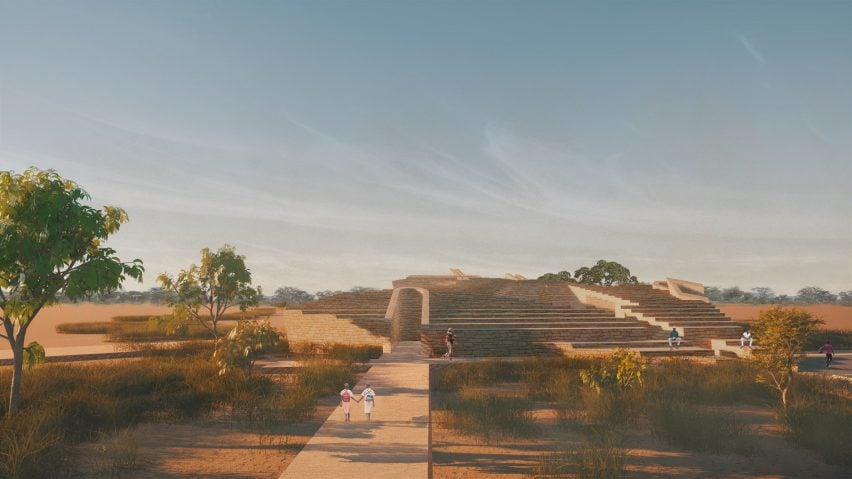
Sumayya Vally references termite mounds for refugee wellness centre in Kenya
South African architect Sumayya Vally is collaborating with creative platform To.org to create a geometric wellness and fitness centre, designed for the refugee community in Kakuma, Kenya.
Named Regenerate Kakuma, the building will take cues from the local people, surroundings and termite mounds and is designed by Counterspace founder Vally with a stepped roof intended to blend into the landscape.
The centre will contain fitness, agriculture, education and cultural facilities and aim to improve the wellbeing of refugees in the area.
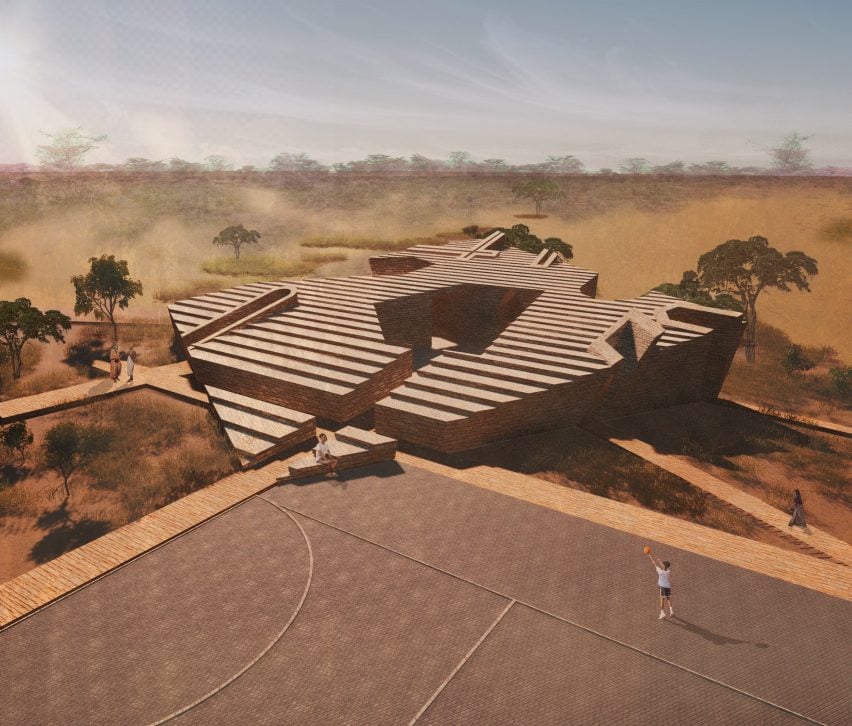
"[We] were inspired both by the immediate local context and by the geographies embodied by the people of Kakuma and their homelands," Vally told Dezeen.
"Termite mounds, symbolic of resilience and community strength, serve as a metaphorical foundation for the centre's design, incorporating the lessons of nature into the architecture."
Located in the northwest of Kenya, the town of Kakuma is home to approximately 285,000 refugees, making it one of the world's largest refugee settlements, according to To.org.
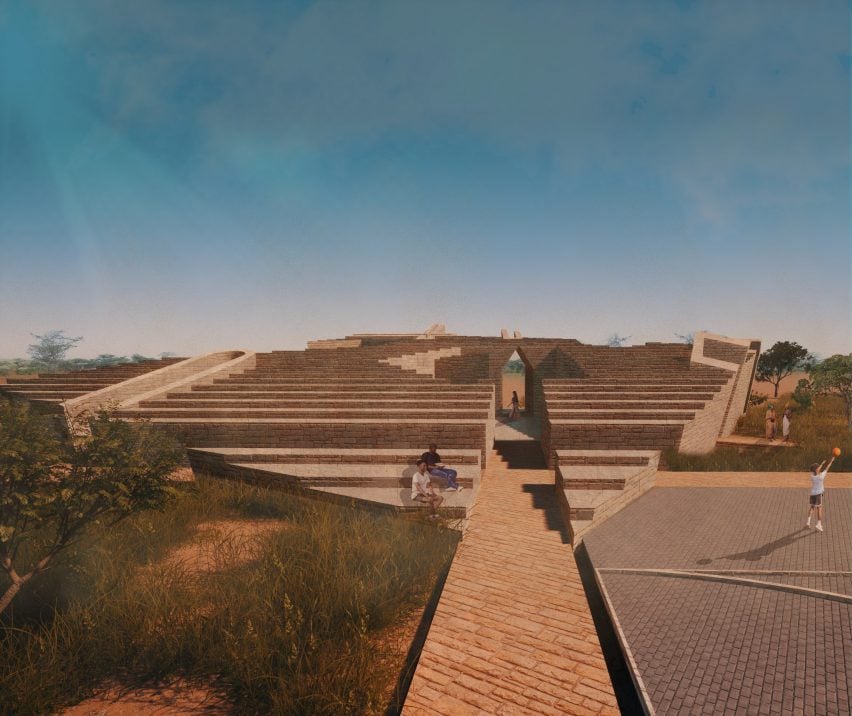
To.org co-founder Nachson Mimran was motivated to work with Vally after visiting her 2021 Serpentine Pavilion, which was informed by the architecture of London's migrant communities.
Vally and To.org worked together to design a square-shaped building with a stepped roof and thick walls, which will be made from local stone sourced from the Turkana region.
Geometric cut-outs in the roof will form lightwells that fill the interior with natural light.
"Lightwells integrated into the roof allow sunlight to filter through in varied intensities – some spaces are bathed in soft, dappled light, while others are brightly illuminated, energising activity and movement," said Vally.
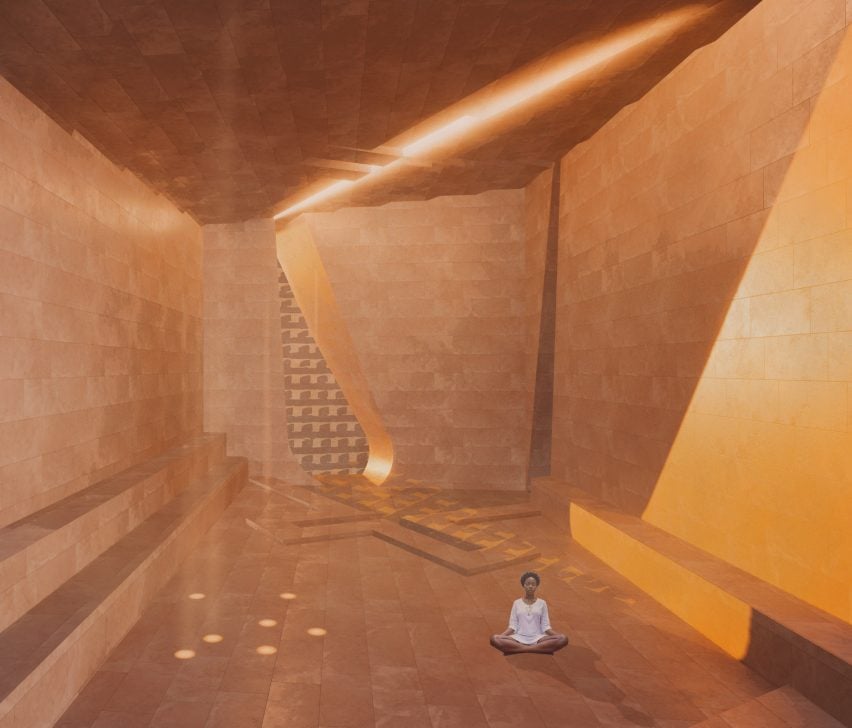
Vally's design also draws on the traditions and cultures of the people who have sought refuge in Kakuma after fleeing their home countries.
"The Kakuma settlement hosts refugees who have fled from 19 different countries, and each community has its own distinct origin, customs, and religious practices," she said.
"Counterspace was inspired by numerous rituals and ancient practices, including the creation of traditional musical instruments, tools and structures of Burundi, Uganda and the Democratic Republic of Congo, as well as the wood carvings of the Dinka community and Somalian talismans."
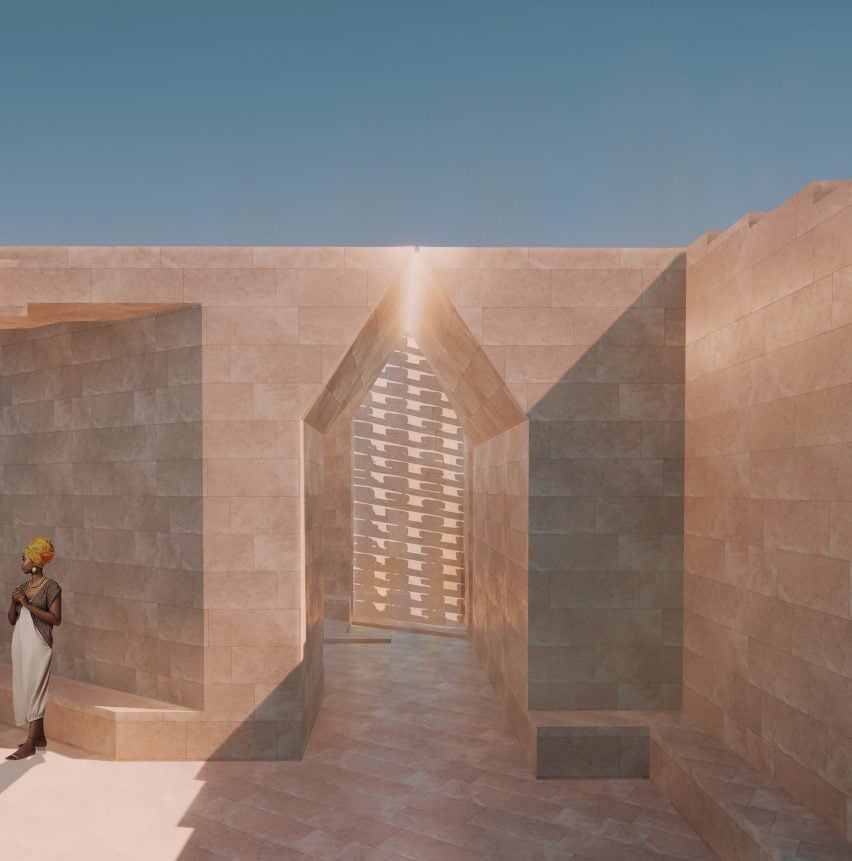
To.org worked with two people living in Kakuma to help determine the centre's facilities – Rita Brown, a yoga and meditation teacher who was orphaned by war in northern Uganda, and Abubakar Rugamba, a fitness-enthusiast who fled persecution in Burundi.
It will contain a gym, an outdoor fitness space with a basketball court, a meditation hall and an agroforestry area, which will aim to build agriculture skills in the community and provide fresh produce.
"Through To.org's grant program to support refugee-led organisations around the world, we discovered there were incredible social entrepreneurs in Kakuma," said the platform's chief operating officer Brian Harris.
"The To.org team was introduced to Rita and Abubakar, who suggested the idea of creating a regenerative wellness and fitness centre."
Construction on Regenerate Kakuma is expected to commence in early 2025.
The project follows To.org's Bidi Bidi Performing Arts Centre in Uganda, which the platform completed with architecture studios Hassell and Localworks.
Last year, Vally was named Dezeen's emerging architect of the year. As well as the 2021 Serpentine Pavilion, her previous projects include a proposal for a sculptural pedestrian bridge in Belgium and the Children's Courtroom installation in Johannesburg, which was designed to teach kids about the law, rights and equality.
The images are courtesy of To.org.